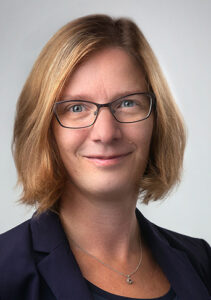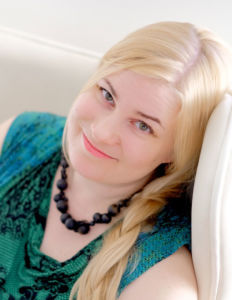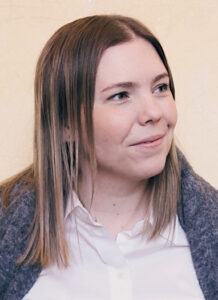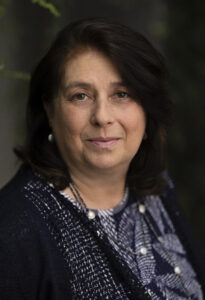Keynotes

|
Language education in Finland – current state and future visionsMikaela Björklund & Leena Maria Heikkola
During the last 20 years, several reports have presented patterns of diminishing (foreign) language skills in Finland (e.g. Vaarala et al, 2017; Pyykkö, 2017). In 2023, the Ministry of Education and Culture in Finland and Finnish National Agency for Education commissioned another study on the current state of and future possibilities for language education in Finland, with particular emphasis on the challenges related to the teaching of the second national language (Swedish or Finnish). As Finland is an officially bilingual country, everyone learns the second national language to some extent during comprehensive education. However, based on teachers’ responses to our questionnaire, the students’ skills in Swedish (or Finnish) are not seen as adequate. Some teachers also state that the energy used to learn the second national language, should be used to study other – optional – languages. Thus, the question arises: What is the future of the second national languages in Finland? Since the current language education does not seem to result in adequate language skills, new ways of organizing the language education is warranted, if these languages are to remain mandatory. The questionnaire, aimed at teachers in basic education and academic upper secondary education, also confirmed the pattern of English as the language dominating foreign language education – in addition to mandatory second national language. This point towards a pattern of bilingualism with two dominant languages, namely the school language (Finnish or Swedish) and English rather than the multilingual pattern indicated in the official steering documents. In our presentation, we will discuss the possible future(s) of language education in Finland. How could we ensure a versatile language education and adequate language skills? How could the second national language (Swedish or Finnish) be taught? Based on our results, we will suggest possible futures for language education in Finland.
BIOS Dr. Mikaela Björklund has 20 years of experience as teacher educator in foreign language education and language awareness at the Faculty of Education and Welfare Studies at Åbo Akademi University, Finland, and currently works as City Manager in Närpes, one of the most multilingual municipalities in Finland. Her main research interests focus on multilingualism and linguistically and culturally sensitive education, including content and language integrated learning (CLIL), students’ multilingual language use, linguistic schoolscapes, and dominant language constellations (DLCs). She is currently involved in a national project with the task to suggest future orientations for the language programme in Finnish schools.
Leena Maria Heikkola works as a professor in Finnish and Kven language at the Arctic University of Norway and as a senior lecturer in Speech and Language Pathology at Åbo Akademi University in Finland. She is also a researcher in the EKKO project (ethically sustainable language teaching) and the KOTI project (support and inclusion of refugee students). In 2023–2024 she wrote a report on the current state and future of language teaching in Finland together with Mikaela Björklund, Jenni Alisaari and Raisa Harju-Autti. Her research interests include clinical and neurolinguistics, linguistically responsive teaching, multilingualism, language learning, and interfaces between language and music. |
|
|
Exploring engagement with languages (LX) within and beyond the language classroomGiulia Sulis
A large number of students within European schools have complex language repertoires (European Commission, 2015). Despite calls to integrate multilingual pedagogies that draw on all learners’ linguistic resources, this is not a reality in most classrooms (Herzog-Punzenberger et al., 2017). As such, exploring learners’ experiences, practices, and beliefs towards the different languages they encounter in their lives is crucially important to understand how their multilingualism can be embraced as a resource in the language classroom and beyond. In this presentation, I adapt Svalberg’s (2009) original construct of engagement with language to incorporate a holistic exploration of how learners engage with the various languages they come into contact with inside and outside of school. While the concept of engagement with language has been predominantly examined in relation to learning a foreign language, I introduce the construct of ‘engagement with LX’ to depict how learners utilise, reflect on, and relate to all the languages in their repertoires, regardless of the date of acquisition, level of mastery, and type of use. Drawing on longitudinal interview and observation data from three English classes in three Austrian middle schools, this presentation will shed light on how learners’ engagement with languages beyond the classroom can support their learning in the language classroom. It will examine how language skills, knowledge, and resources acquired beyond the school context can be transferred to the language classroom, and will describe the kind of affordances for language learning they perceive across their multiple life domains. The presentation will conclude by offering practical implications on how teachers can engage with learners’ whole language repertoire to support their language learning process, while fostering a sense of inclusivity in the language classroom and promoting learners’ intercultural competences.
BIO Dr. Giulia Sulis is a senior postdoctoral researcher and lecturer at the University of Graz, Austria. She is currently serving as principal investigator in an ESPRIT project funded by the Austrian Science Fund(FWF) focusing on language learning engagement entitled ‘A multi-level model of middle school student engagement’. Her research interests lie in all aspects surrounding the psychology of language learning and teaching, multilingualism, and global citizenship. She has written and coauthored several publications in these areas including a monograph with Sarah Mercer, Astrid Mairitsch, and Sonja Babic on language teacher wellbeing published by Multilingual Matters. |
|
|
Thinking and doing literacies and languages
|
|
|
High-stakes testing and linguistic discrimination in Europe: what is the best way forward?Gessica De Angelis
Discrimination occurs when a person is treated unfairly or differently from others because of individual characteristics, circumstances, or beliefs. For a long time, discrimination was linked to a person’s social class and economic status, but today it is increasingly linked to the languages a person speaks and uses in everyday life. Linguistic discrimination is prevalent in many second and third level education systems around the world due to the extensive use of national standardized tests written and administered in a single language for student progression and scholarship purposes. Discrimination arises as many test–takers are not monolingual and are not dominant in the majority language. National tests pose a challenge for those who lack fluency in the language of testing, as language difficulties may hinder their ability to perform and demonstrate their knowledge and skills as well as their native peers. As a result, those who speak a majority language are more likely to get higher grades, admission to the best schools and access to the best scholarships, while those who speak a non-majority language may be denied the same opportunities. The lack of educational opportunities has repercussions for students’ future employment prospects and impacts their overall quality of life and well-being. Linguistic discrimination in education affects a large number of people in Europe alone. These include (a) speakers of regional and minority languages, (b) European immigrants who move to another country and are proficient in one or more European languages but not in the language of the host country, and (c) immigrants who are dominant in one or more non-European languages. Linguistic discrimination is now becoming more of a pressing issue in Europe due to the rapidly growing influence of standardized testing, largely driven over the last two to three decades by large-scale international testing activities such as the Programme for International Student Assessment (PISA), Trends in International Mathematics and Science Study (TIMSS) and the Progress in International Reading Literacy Study (PIRLS). As the influence of standardized national tests in education is likely to increase in the coming years, it is vital that the academic community examines the implications of this influence and explore ways in which equality in education can be supported and promoted. This presentation will explore linguistic discrimination in more detail, providing evidence of its occurrence worldwide, with a particular emphasis on where and how this type of discrimination manifests itself and its impact on millions of individuals in Europe. In order to seek viable solutions, the discussion will also address the challenges that multilingual speakers pose to education systems and standardized testing activities more broadly. This includes examining how multilingual speakers are classified and treated during the testing process, and how they represent a challenge to the well-established exclusion criteria so commonly used by testing agencies in managing linguistic diversity. BIO Gessica De Angelis is Professor of Applied Linguistics/TESOL at the Department of Teacher Education, NTNU Trondheim, Norway. She holds a Ph.D. in Applied Linguistics from Birkbeck College, University of London, UK. Her research focuses on multilingual education, multilingual language acquisition, and multilingual testing and assessment. Her publications include two monographs (Third or Additional Language Acquisition, 2007; Multilingual Testing and Assessment, 2021), three edited volumes, and several journal articles and book chapters. She has given invited lectures and keynote addresses across Europe. She is the former Vice-President of the International Association of Multilingualism (2009-11; 2012-2014) and she is actively involved in projects on multilingual education. |






